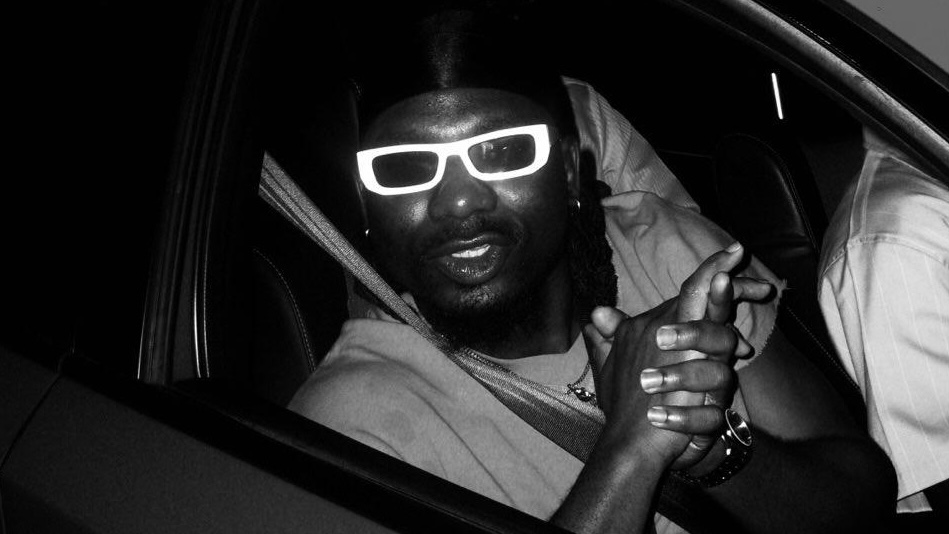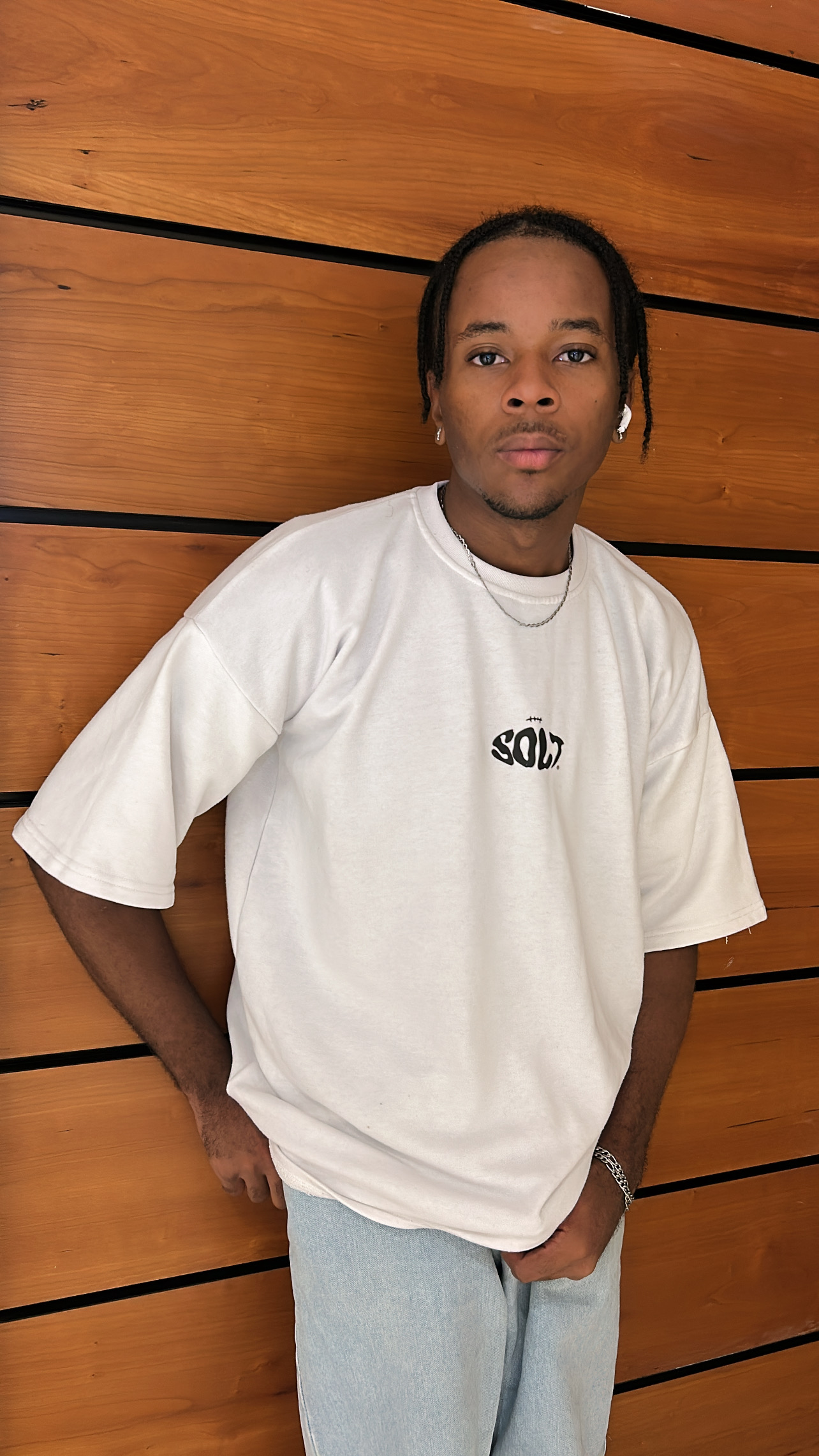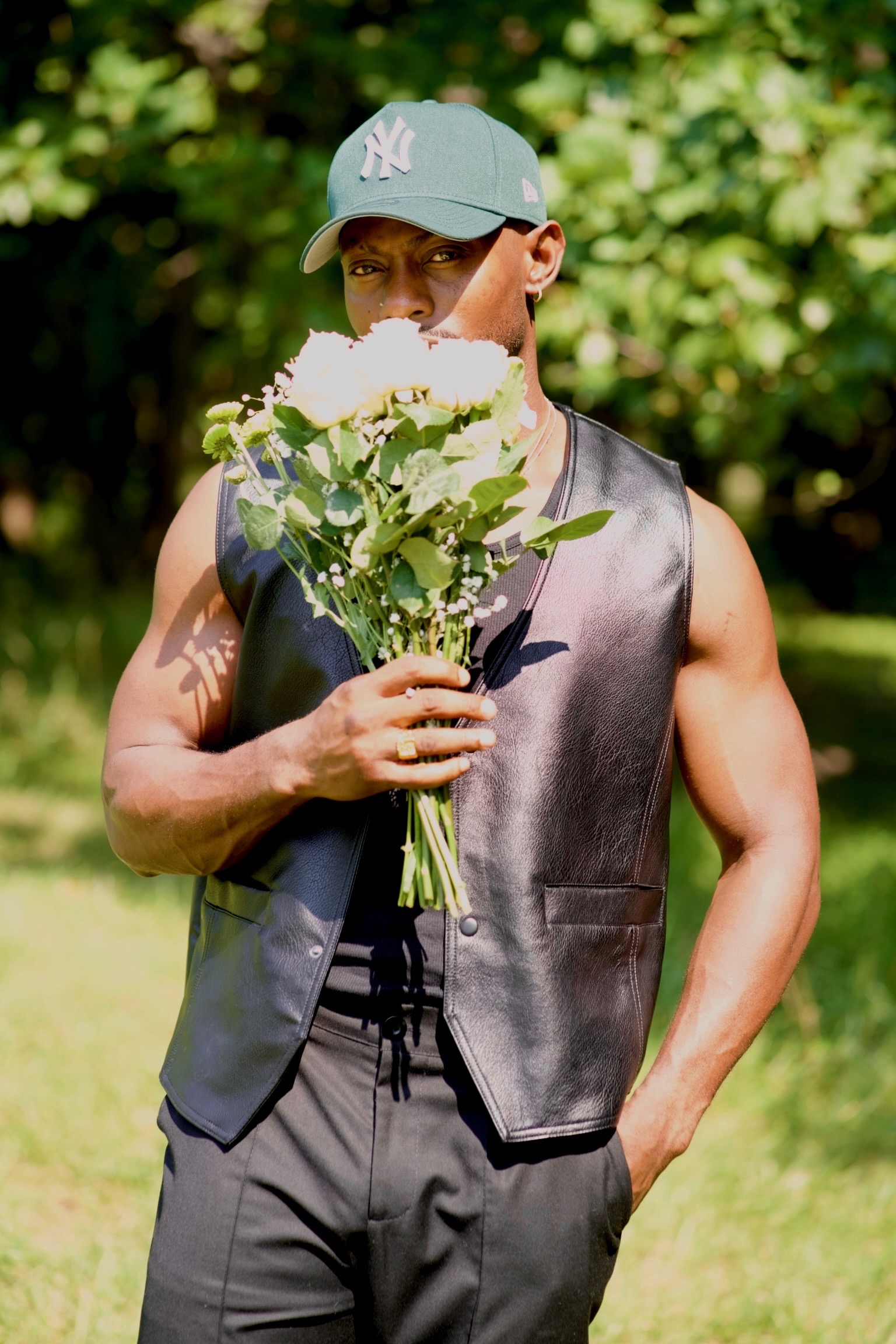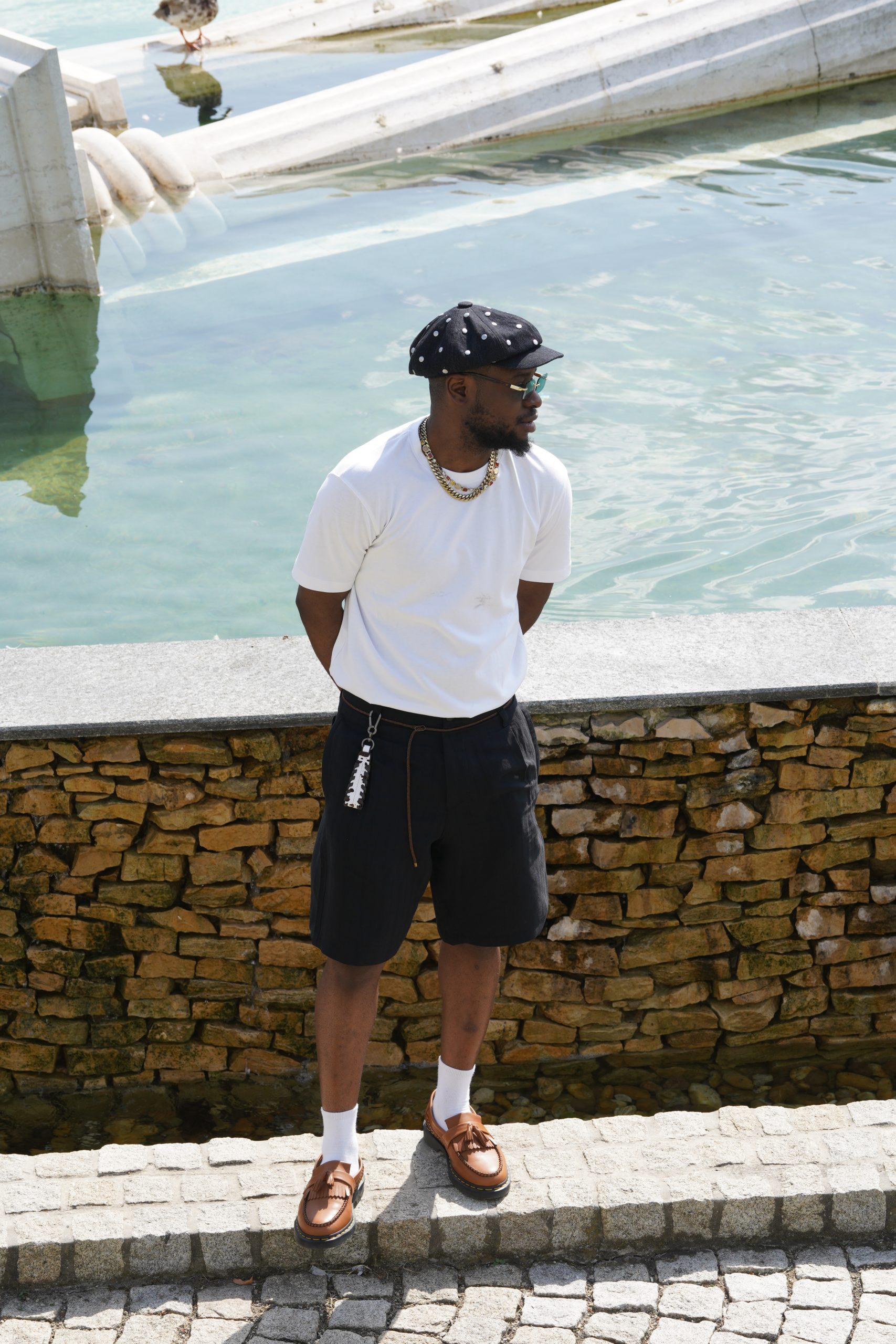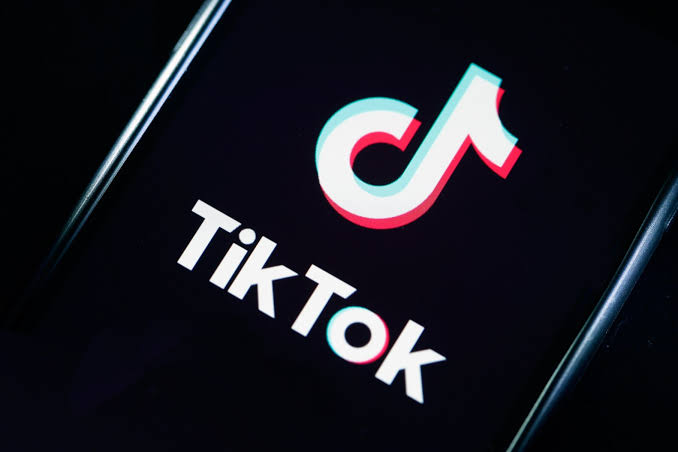From the bustling streets of Yaba, Akoka, Bariga, and Sabo to some of the biggest stages in Nigeria and beyond, DJ Voyst’s journey has been nothing short of electric. Known for his seamless blends, precision timing, and ability to read a crowd like an open book, Voyst didn’t start behind the decks; he started in front of them, mic in hand, hyping the audience into a frenzy.
Over the years, he’s worked with some of the most influential names in the industry, from Joeboy and Oxlade to Terri and Blaqbonez, and has taken Afrobeats to audiences across continents. His nickname, “The Sound Surgeon,” isn’t just a catchy title: it reflects his meticulous approach to music, where every beat, transition, and drop is carefully crafted to create unforgettable moments.
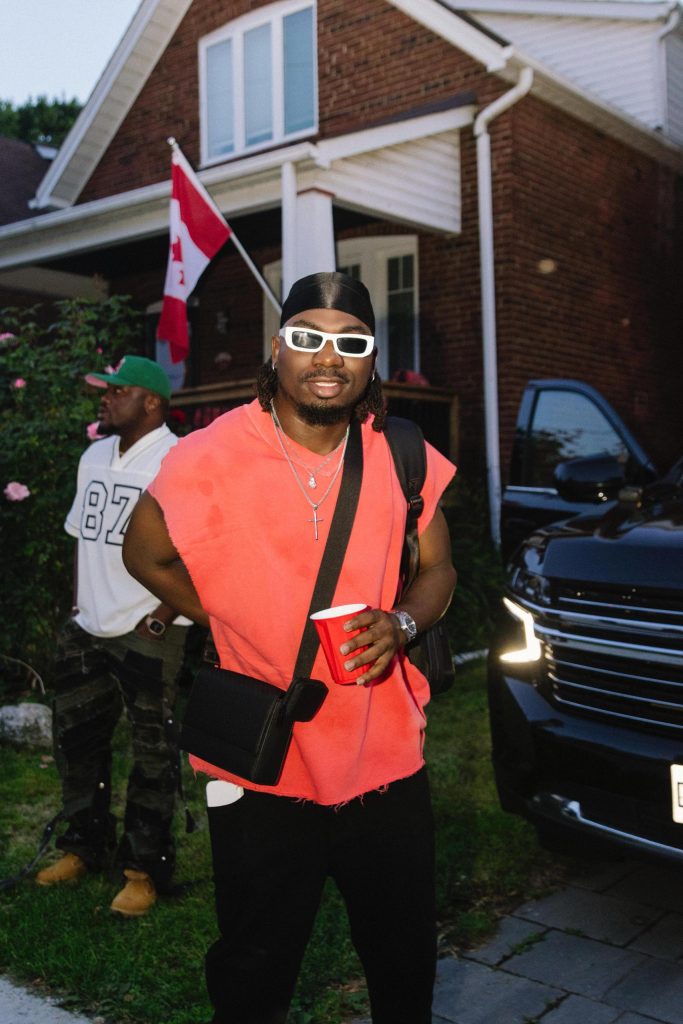
In this interview, DJ Voyst opens up about the lessons he learned from mentors like DJ Neptune and DJ Tunez, the discipline radio instilled in him, his process for spotting talent before the rest of the world catches on, and why he believes Afrobeats is more than just a genre.
How did growing up in Lagos shape your early relationship with music?
Growing up in Lagos, specifically Yaba, Akoka, Bariga, and Sabo, was fast-paced, with an infectious youthful energy that helped shape me as a young entertainer. From party raves to talent shows, everyone had the freedom to express themselves.
You started as an MC and hype man before becoming a DJ. What was that pivotal moment when you realised you wanted to be behind the decks instead of in front of the crowd?
As a hypeman, I paid close attention to how the music moved the crowd: the drops, the call and response, creating priceless moments. That feeling made me realise I wanted more than just to talk to the crowd; I wanted to be in control.
You trained under DJ Tee, DJ Neptune, DJ Tunez, and DJ Terryt. What’s the most valuable lesson each of these mentors taught you, and how did their different styles influence your own?
Understanding how they operated helped me create my own path. We’re all DJs, but each of us has a different niche and style of execution, which makes us unique. I essentially understudied every one of them.
Your time at Brilla FM spanned five years. How did radio DJing change your approach to music curation and audience connection?
Radio, as a platform for DJs, teaches many valuable lessons, especially discipline. Knowing you are delivering music to millions of listeners at the same time is humbling. It makes you realise the importance of planning ahead, as every song matters, and its lyrics must be carefully considered for the audience.
What does being “The Sound Surgeon” mean to you, and how does it reflect your approach to music?
It started as a personal motto and eventually became an essential part of my brand. It’s simple: just as a medical surgeon performs surgical operations on humans, I, Voyst, perform surgical operations on sounds.
You’ve had an incredible ear for talent, working on hits like “Gbese” with Joeboy and Oxlade, and “Hold You Down” with Terri and Blaqbonez. How do you identify that special chemistry between artists before they even know it exists?
It’s a gift. I’ve always loved to A&R records that people wouldn’t typically see coming. I enjoy exploring and being innovative. This is only the beginning, and I have new materials in the works.
Tell us about your latest collaboration. What drew you to work with Dai Verse, and what can listeners expect from this track?
Dai Verse is a special talent I’ve always wanted to work with. I organised a recording camp and invited him, played the beat for him, and the rest was history. The song we created, “Overload,” is already out on all platforms, and I guess the listeners can now tell us what they think about the record.
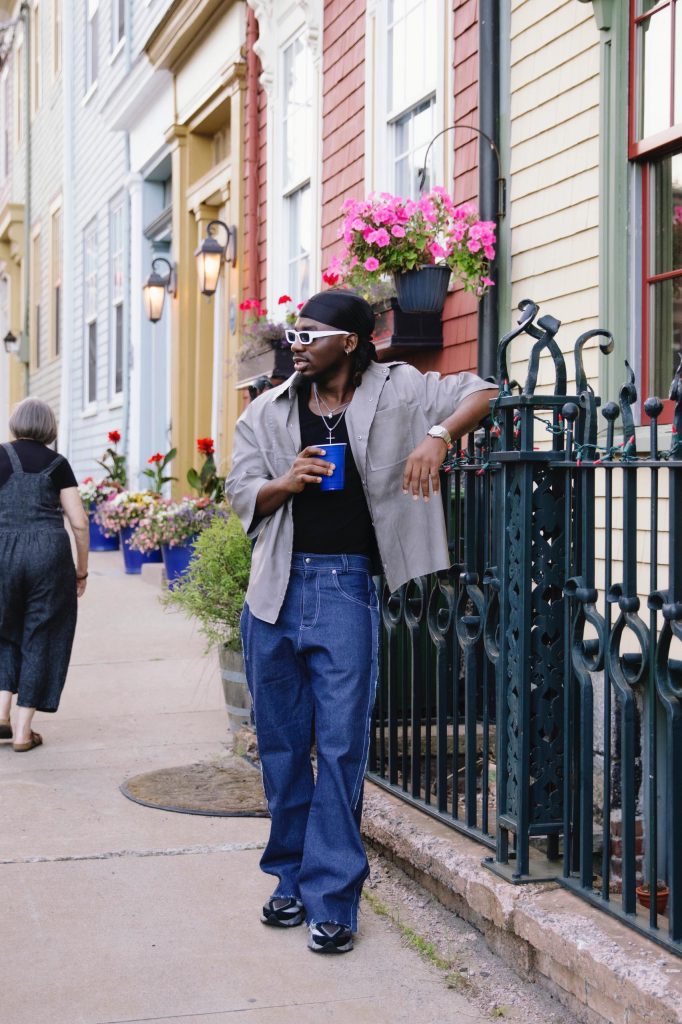
Beyond just featuring on tracks, how involved do you get in developing the artists you work with? Do you see yourself as more than just a collaborator?
Yes, I’m definitely more than just a collaborator. I co-create, from the production stage to post-production, always aiming to deliver a well-rounded product. I make it a point to interact closely with the artist to understand their vibe and energy because that is what will connect with the fans.
Which performance stands out as your most career-defining moment?
I have many memorable moments, but one that still stands out is when I DJ’d at Wizkid’s Starboy Fest in front of over 20,000 fans. It was incredible, and I held it down for over two hours. Big shout-out to DJ Tunez.
How have you seen the Afrobeats movement evolve, and where do you think it’s headed internationally?
Having been on the road for months, taking Afrobeats to different parts of the world, I’ve come to realise that it’s more than just music: it’s a way of life, a culture, an identity. More and more countries are eager to experience this genre, and the sky is just the starting point.
What’s next for DJ Voyst? Any upcoming projects, collaborations, or ventures you can share with us?
A lot is in the pipeline, to be honest. Voyst is spreading his tentacles; I have new music coming, a new content series, Ward’99 Anniversary Edition, etc.
For young DJs trying to make it in Nigeria’s competitive music scene, what’s your key advice for them?
Keep evolving and meeting the needs of the genuine music fans; they are the real dictators.
How do you want to be remembered in the Nigerian and global music industry? What impact do you hope DJ Voyst leaves on the culture?
I want to be remembered as one of the most daring DJs to ever do it. A global DJ.
The way people discover and consume music has completely changed since you started. How has that shifted your role as a curator? Do you mourn anything about the old ways?
Change is inevitable, so it’s important to keep evolving with the times. Fortunately, the core process of making music remains the same; we simply have new channels of expression.
